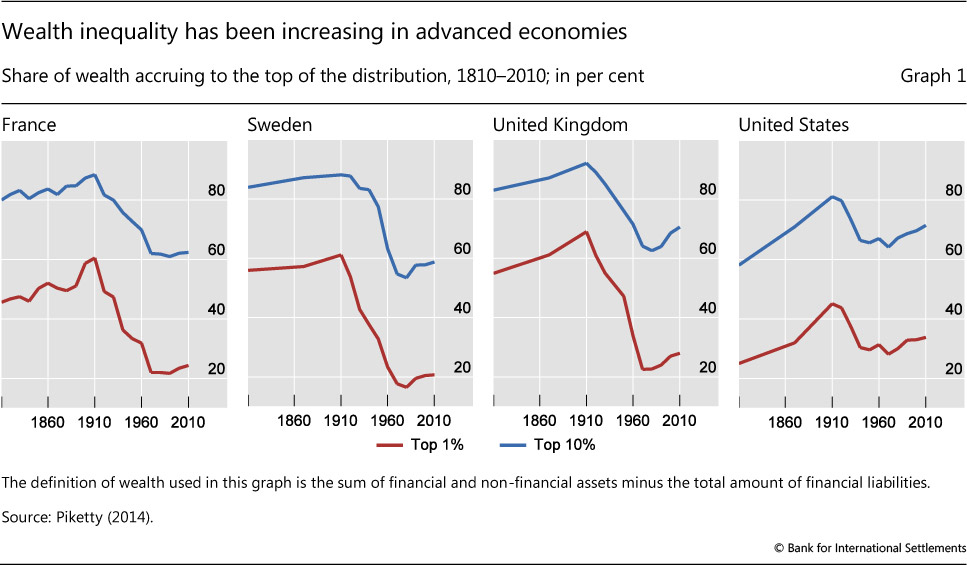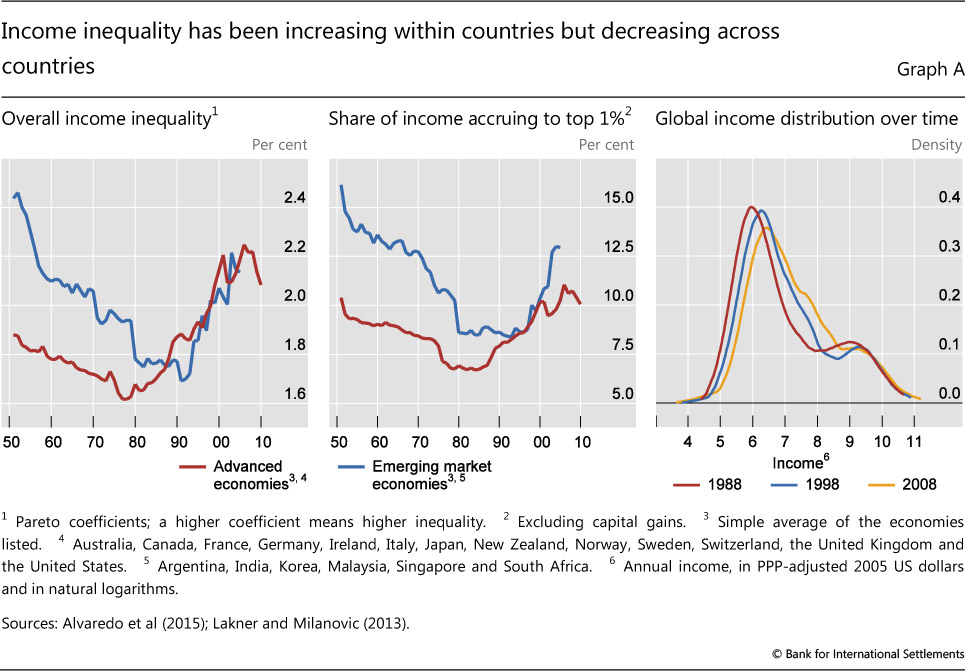笨狼發牢騷
發發牢騷,解解悶,消消愁現在全世界經濟風風雨雨,都在看聯儲(美國央行)眼色,中國和發展中國家首當其衝,不過美國的富人也牽連在內。美國一旦加息,美元猛漲,除了對美國 經濟是個打擊,資金也從全球流回美國,發展中國家不但沒錢了,堆成山一般的(美元)債務更是沒法維持,難說不導致全球性的經濟危機。這是為什麽國際貨幣基金組織懇求聯儲別加息的原因。與此同時,即使全世界不 發生經濟危機,光是美國經濟所受的打擊,美國股市必受重挫,那一來,美國有錢人的主要資產,股票為主,得大幅跳水,那是動了美國的根基,不能動。
所以上周聯儲按兵不動,我在美股翻身裏說了,世界央行裏,“美國是最婆婆媽媽的。 別看姚玲說話口齒伶俐,能言善辯,隻字不提股市,其實一切行動,莫不以股市為中心,最無能。“
不這也好,股票接著漲,皆大歡喜。油也跟著上,隻不過我以前說的“油價不可能上$40 ”要泡湯了。
有了背景,就得了解了解美聯儲和美聯儲常委。美聯儲由中央常委和各大軍區組成。中央常委叫“Board of Governors”,頭頭是常委主席,就是姚玲了。各大軍區是所謂“Federal Reserve Regional Banks”,共有紐約,波士頓,費城,亞特蘭特,芝加哥,三番,克利夫蘭,裏士滿,明尼蘇達,堪薩斯,聖路易斯,達拉斯12區。一個軍區的頭頭,司令員,是那兒的“President”。
【注】常委法定7人,但目前兩黨爭鬥,兩個空出來的位子遲遲未能填上,故隻有5人幹活兒。
美聯儲是最婆婆媽媽的央行
美國就業很火,是美國經濟領銜世界的主要體現,這也是聯儲的使命(之一)。按道理,該加息了。不過聯儲三番五次以“難見通脹”為借口不加。零利率和負利率對金融、經濟扭矩很大,大家就盯著央媽,不願意冒險。聯儲一邊得說“美國經濟全球領先”,但又得說“問題多多”,不說自打嘴巴。也是狡辯。過去幾個月通脹見眉目了,聯儲又來“中國風險大(,不能讓老大虧錢了)”,也難怪大家不信其“回歸正常貨幣政策”的空頭口號(The Fed's Credibility Dilemma)。
美聯中央委員會(Federal Open Market Committee)由美聯儲常委(常任)加5位軍區司令員(Regional Fed President)組成,共12人。紐約曆來勢大,紐約軍區司令員是中央委員會常任委員,誰也趕不走。其它四個位子由12位司令員輪流,一年一任。排隊明年進中央的,就是候補(alternate member)。每次中央全會,他們和其他司令員都能出席、發言,但無投票權。

國父哈密爾頓,如果不是傑佛遜頂著,差點兒沒把紐約弄成首都。。大家熟悉獨立宣言,起草人都是大智大慧的人,都是國父。不過貧民出生才華洋溢的哈密爾頓還是 瞧不起他們,自覺告他們一頭,跟這些國父們都是死對頭,結果被擠噠,鬱鬱不得誌。不過哈密爾頓也不是省油的燈,有個才貌雙全出生名門閨秀的老婆,還跟小姨 子談感情,半公開地跟一有夫之婦通奸,最後別逼決鬥,莫名其妙地喪了命。唉。
這不,大家現在又要把哈密爾頓從十元貨幣上摘下來了。

聯儲裏的鷹派鴿派(投票資格是去年的,參見“候補”一項)
路透社實時鷹鴿圖

聯儲自我科普:Introduction to the FOMC
現任:那個司令員進了c出了中央?

目前聯儲中央壓倒性的是鴿派。這兩天三番William, 亞特蘭特Lockhart和芝加哥Evans出來說目前美國經濟沒問題,應當加息,對美元、股市澆了點冷水,大家是停頓揣摩以靜待動。不過三人都不在中央,隻有芝加哥市候補,成不了事。
上周中央表決按兵不動,讓中國鬆了口氣(見美股翻身)鷹派肯薩斯George是唯一反對的

聯儲和不平等
大家一般認識
How Monetary Policy Impacts Income Inequality
問聯儲能做啥,姚玲說增加就業是咱聯儲能做的,唯一能做的,而且也做的不錯。
6Yellen responded with a full-throated defense of how an “accommodative” monetary policy — or one that keeps interest rates low — actually reduces income inequality by maximizing job opportunities for the most vulnerable.
“To me the main thing that an accommodative monetary policy does is put people back to work,” Yellen said. “And since income inequality is surely exacerbated by having high unemployment and a weak job market — and that has the most profound negative effects on the most vulnerable individuals — to me, putting people back to work and seeing a strengthening of the labor market, that has a disproportionately favorable effect on vulnerable portions of our population. That is not something that increases income inequality.”'
聯儲辯護者說
其實中產,而非頂層,獲益最大,原因是得益最大的資產是房價,聯儲的政策對這個階層的作用最大。也許極少數有錢人壓在資產上財富倍增,但範圍更廣的上層(如5%)不少人都是積蓄了終身的老人,不敢將錢壓在風險較大的資產上,也未必有路子(如私募),結果他們在固定利率產品上的投資基本全虧了,讓聯儲吃了,成了受害者)我在“百裏挑一又有何用?”嘮叨過,0.01%的,得到的利益最大。聯儲難以辯護的,是這幾個人吃的,大得不得了,參見我嘮叨的百裏挑一又有何用?。
現任美聯儲中央委員會:
2016 Committee Members
- Janet L. Yellen, Board of Governors, Chair
- William C. Dudley, New York, Vice Chairman
- Lael Brainard, Board of Governors
- James Bullard, St. Louis
- Stanley Fischer, Board of Governors
- Esther L. George, Kansas City
- Loretta J. Mester, Cleveland
- Jerome H. Powell, Board of Governors
- Eric Rosengren, Boston
- Daniel K. Tarullo, Board of Governors
Alternate Members
- Charles L. Evans, Chicago
- Patrick Harker, Philadelphia
- Robert S. Kaplan, Dallas
- Neel Kashkari, Minneapolis
- Michael Strine, First Vice President, New York
克利夫蘭的Mester,也是個鷹派,沒George那麽“右”,但也常常出來說很多地方有通脹。不過上周她支持不加息
當代西方主流經濟學家的觀點是,西方的經濟理論基本是對的,貨幣政策方麵的使用,沒有啥不妥的,風險經過美國2008金融大危機的考驗,風險也可控,現在世界央行越救越大,沒關係,沒效果,那是還不夠大,接著做,加碼做,一定行。埃裏安(穆罕默德·埃裏安,Mohamed El-Erian)今年對此有個總結,說世上央行們認也好,不認也好,已是黔驢技窮了。
貨幣政策實施周期長,影響深遠,一時半會兒改也改不了,其危害得一代人遭殃才能熬過。我對西方經濟學在貨幣政策上的態度感覺是:過山車,總有一天大家一塊死。

大起大落,沒完沒了
【注】
(中國)央行遵循西方經濟理論的氣氛也濃,周小川國內培訓,副行長陳雨露郭慶平也屬國內,但常常出頭露麵的潘功勝(國內博士,劍橋大學博士後學者及哈佛大學高級研究員)和易綱(伊利諾大學經濟學博士)西方影響痕跡大,範一飛(中國人民大學經濟學博士,美國哥倫比亞大學國際經濟碩士)也有些瓜葛。
國際結算銀行警告負利率的危害
What the central banker's central bank thinks about negative interest rates
(原文)Wealth inequality and monetary policy



對此,經濟學家Diana Choyleva在《金融時報》有篇專欄,說這其實就是愛因斯坦所說的“瘋了”。
《金融時報專欄》Central banks prove Einstein’s theory
Diana Choyleva
Fed, BoJ and ECB have not learned the lessons of financial crisis
©AFP
Albert Einstein is said to have defined insanity as doing the same thing over and over again and expecting different results. By failing to change their way of thinking since the global financial crisis, the world’s main central banks are proving Einstein right.
Many in the markets worry that central banks are running out of ammunition to boost global growth and generate inflation. They are not. The Bank of Japan’s adoption of negative interest rates, the European Central Bank’s extension of its quantitative easing (QE) programme and theFederal Reserve’s decision to slow the normalisation of US interest rates show that policymakers can still draw on plenty of firepower.
So it is not that central banks are not doing enough. It is that their policies are misguided and are hampering global rebalancing. In particular, investors should be worried that policymakers have failed to learn three main lessons from the subpar performance of the global economy since the 2008-09 crisis.
First, if an economy is drowning in debt, the solution is not to pile on even more debt. That is why the ECB’s offer, under the terms of its new targeted longer term refinancing operations, to pay eurozone banks to increase their lending is badly judged. The ECB is right to do QE, but at the same time it should use its new powers as the supervisor of eurozone banks to force a swifter write-off of bad debts. Almost 20 per cent of Italian bank loans are non-performing. Until now, the ECB has counted on QE to work by weakening the euro. Its strategy instead should be to use QE to buy time to cleanse bank balance sheets.
Second, no one wins from competitive devaluation when global consumer demand is weak because of excessive savings, as is the case today. The Bank of Japan has deployed the big battalions in the currency wars. Abenomics, the economic strategy of prime minister Shinzo Abe, was meant to combine monetary easing, fiscal stimulus and structural reform. Instead, in the past two years it has boiled down to a devaluation of the yen. On that narrow criterion, Abenomics might be judged a success — the yen has become so undervalued as a result of the BoJ’s loose monetary policythat traders are snapping it up.
But in fact the BoJ’s policy is as ill-thought-out as the ECB’s. Japan’s biggest economic imbalance is that too much income flows to companies, which sit on mountains of cash instead of investing it or returning it to shareholders. A cheaper yen compounds this problem. By boosting export earnings and making imports dearer, a weaker exchange rate transfers ever more income from households to the corporate sector. So the BoJ should welcome the recent recovery in the yen.
Unfortunately, the central bank has waited far too long to do the right thing. A financial crisis in Japan is now a matter of when, not if. As unlikely as it sounds in an economy fighting falling prices, the crisis will take the form of inflation. That will happen when Japanese banks run out of government bonds to sell to the BoJ, which will be forced to increase its purchases from insurers and other non-bank financial institutions. The result will be a rapid expansion in broad money, unmatched by growth in the real economy. That will unnerve domestic investors and spark a flight into US Treasuries and other overseas assets, sapping the yen. If the crunch comes in the next year or two the rest of the world will be too weak to withstand it.
Third, tepid growth since the crisis shows that a short, sharp adjustment and purging of past excesses is better in the long term than prolonged attempts to preserve the economic status quo. The Fed should have stuck to its plan to raise interest rates four times in 2016 instead of worrying that higher rates might hurt the rest of the world or asset markets might throw a tantrum. An upbeat message that higher borrowing costs were justified by positive domestic economic trends, notably a strong labour market, would have given US consumers the confidence to spend their windfall gains from cheaper oil.
In short, the ECB, the BoJ and the Fed have missed a golden opportunity this month to make much-needed course corrections. As a result, the euro area and Japan remain fragile while the US is not making the most of much-improved fundamentals, so the global economy is still perilously unbalanced. The world might muddle through for another year, but its leading central banks have failed to banish the risk of a calamitous 2017.
Diana Choyleva is chief economist at Lombard Street Research





如埃裏安所言。
回複 ' 鬢微霜又何妨' 的評論 :
人民幣貶值變數難以預測。中國政府目前是保值,這是唯一的法子。
回複 'niu9898' 的評論 :
不論中央還是分區,聯儲都是政府的。分行有本區銀行參與“控股”,選舉頭子(主席),分行確實得為自己的銀行發言、爭利。不過這隻是(美國)央行係統的的意思:公私利益乃一致的,換言之,“國家利益”上,公私一致。“私人機構”嫌有過時、偏見和貶義。
回複 'Blue-Crab' 的評論 :
未必是“偏見”,異議則顯然。“中國風險大”之說,屬借口。聯儲在不同的場合說不同的話,言及“隻注重國內經濟”也不少。“沒有也不允許幹預股市”,那隻是蒙蒙百姓的,記得伯南克說的嗎?
至於“輪流”“候補”之類,不必細究,我都是瞎翻譯,故意的,輕鬆輕鬆,要不大家覺得沒勁了。